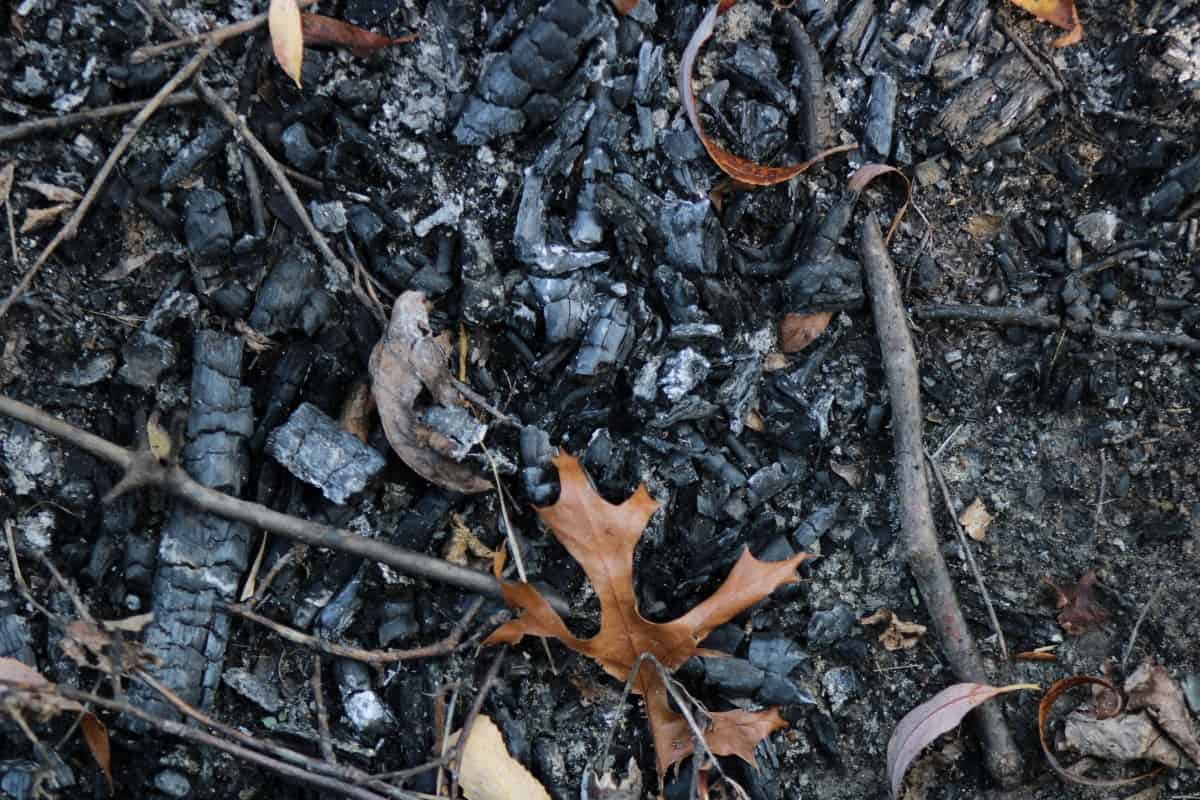So you got yourself a fire pit. That’s great! But now you have to make sure you maintain it well, which also means cleaning it. How you clean your fire pit will depend on what material your fire pit is made out of; whether it is brick, masonry, cast iron, metal, or even steel.
Having a fire pit in your garden is heavenly. You can entertain your friends outside colder evenings because the fire pit will keep everyone cozy and warm. Plus it’s aesthetically pleasing and can be an added accent to any garden area.
No matter the type of fire pit you have, you need to make sure you maintain it properly.
How to clear out the ashes and other debris
Before you begin the cleaning process you must ensure you have the right tools for the right fire pit. First of all, you will need a shovel or something you can use to clear the ashes out of the pit.
If you can’t get rid of all of it by using your shovel, feel free to get a handheld vacuum and get rid of those stubborn bits at the bottom of the pit.
Make sure you never, ever remove hot ashes from the fire pit! It is unsafe and you will just burn yourself and burn the bag you are putting the ashes into, which can actually catch fire!
Alternatively you can buy ash scoops, specifically for cleaning fireplaces and fire pits. You will also need a bucket, a cloth, soap or muriatic acid, and gloves! Additionally, you will need a bin bag for the cold ashes, and a dustpan and brush if you can’t get a handheld vacuum.
Now, if you have a gas fire pit, make sure you clear the debris off of the glass or stone. Once you clear the debris out of your fire pit, you can begin the cleaning process. As mentioned before, different types of materials will require different processes.
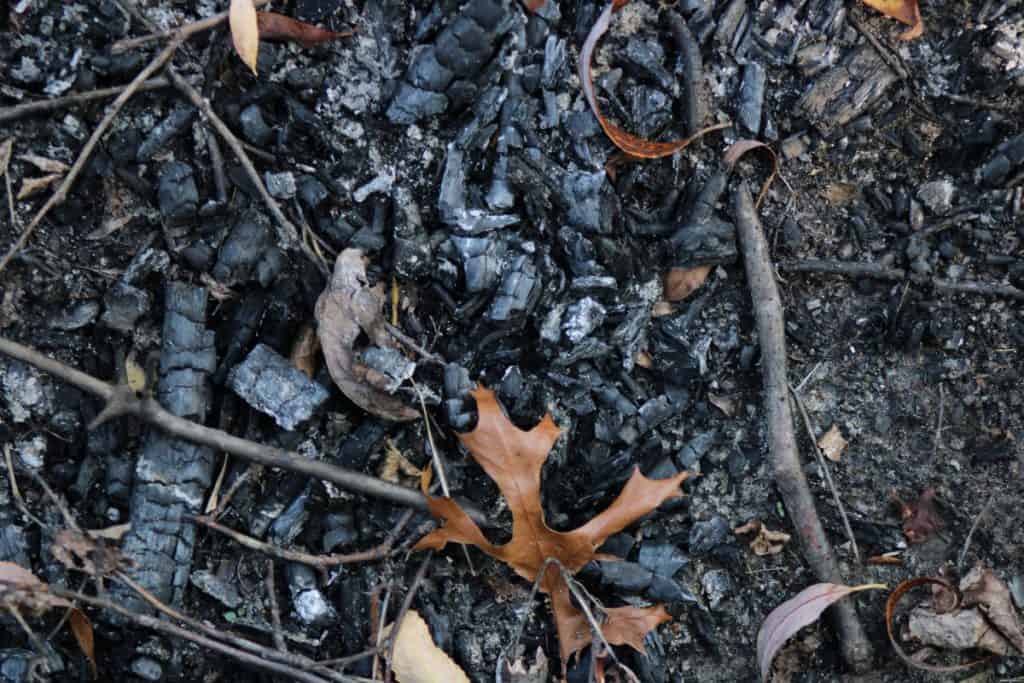
How long to wait after use before cleaning the fire pit?
You need to make sure your fire pit is completely cooled down before you start the cleaning process. This means you need to wait several days for the ash to cool, before scooping it out. As mentioned earlier, hot ashes will burn you and the bag you might be using.
If you have a gas fire pit, make sure it is cooled down completely before cleaning. This is also the case with lava rocks if you are using any.
What to do with the ashes after cleaning?
Depends on whether you are reusing them. If you are not looking to reuse them for anything else, like for keeping any pests away, such as ants and slugs, then you can dispose of them in a bin bag and put them out with your normal rubbish.
“But if you are reusing them, there are plenty of ways you can do so. Sprinkle a little bit onto the garden beds to keep the pests away, or simply place it in your compost, because it adds a ton of nutrients.“
Ashes can also be used in icy conditions. They can create traction so you can be safer when winter comes. This would be perfect when you are using your fire pit in the spring and summer. You can just collect the ashes and use them in the winter, saving you money on salt or grit.
Brick, Stone or Masonry Fire Pits
You will need a solution called ‘muriatic acid’ to clean your fire pit. You need to mix this solution with water. The ratio for mixing is one-part muriatic acid and nine parts of clean water. Please make sure before mixing the solution you put on some gloves to protect your hands.
Once combined, you can use a sturdy brush to start rubbing the dirt off of the outside of the pit as well as the inside. Make sure you get all the stubborn bits off at the bottom of the fire pit, and once done, rinse your pit with fresh water. The easiest way to do this is to use your garden hose for this part.
When you are finished with the cleaning and rinsing process, make sure you let it dry completely. It can take up to three days for it to fully dry. Some companies do recommend you add a sealant to your masonry pits which they say can make cleaning easier for next time.
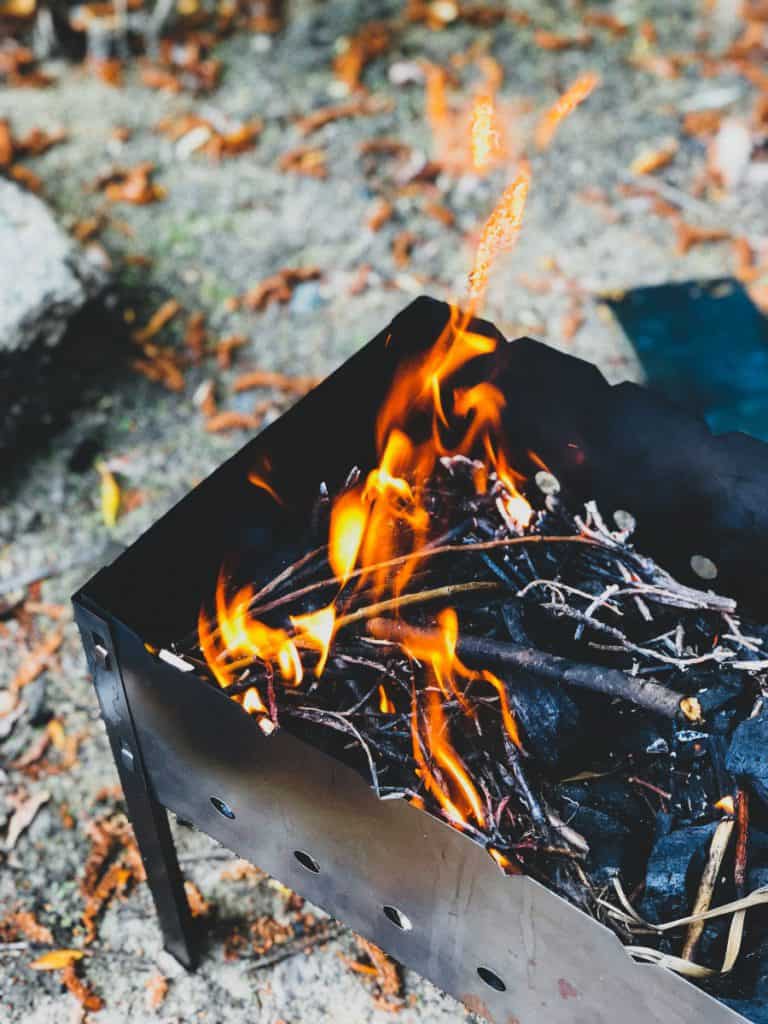
Metal or Steel Fire Pits
Many people opt for metal or steel fire pits. They have a rustic look and are more versatile. They are amazingly resilient and hold heat very well. Cleaning them is a completely different process than the process for masonry/stone.
If your fire pit is made out of metal, make sure you get a bucket. Fill it up with hot water and use some regular soap in the water. Find a soft cloth and scrub the interior of the pit with the soapy water and the cloth.
Once cleaned with the soapy solution, make sure you rinse your fire pit. Again, you can use your garden hose to rinse the pit off. Now, a very important step in cleaning a metal fire pit is to DRY IT!
If you leave water just sitting in a metal fire pit, it tends to start rusting. You don’t want it to rust, so make sure you have dried it completely. Also, make sure you keep it out of rainwater or make sure you clean the water out straight away to reduce the chances of it rusting.
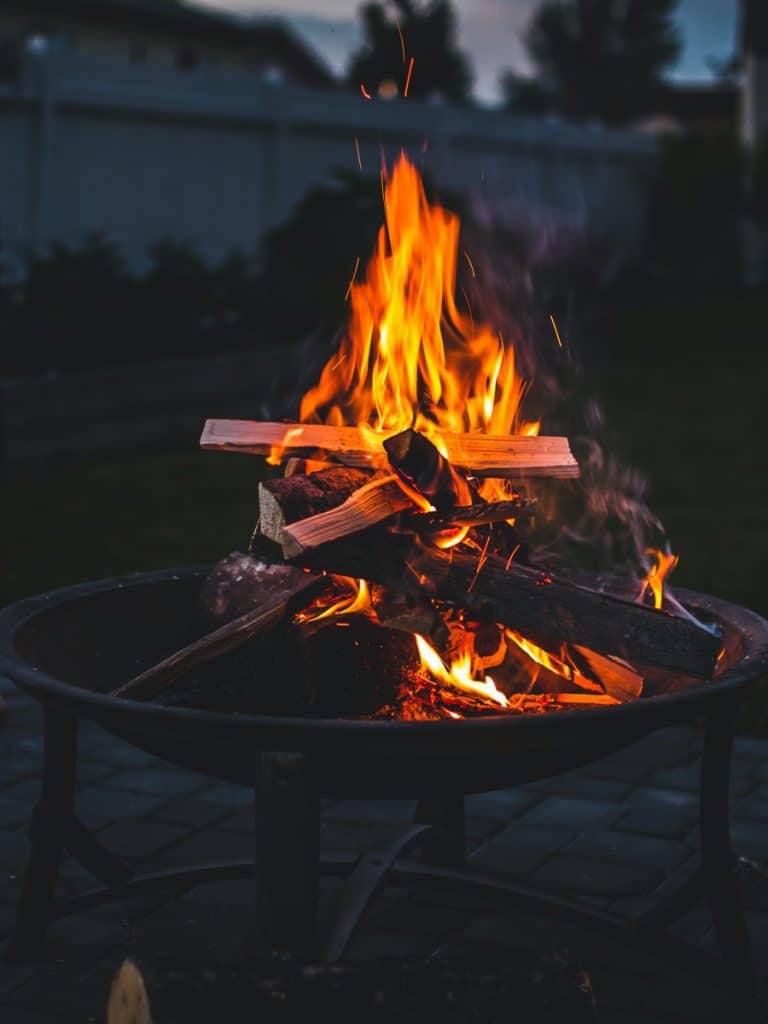
Cast Iron Fire Pit
Cast iron is an amazing material. It is heavy-duty and resilient. But it needs more attention when it comes to cleaning. Anyone who has a cast iron pan in their kitchen will know the effort you need to make when cleaning those pans.
Do not use soap! All you need is some hot water and some steel wool.
Gently start scrubbing the cast iron inside and outside, and then quickly rinse it off. Cast iron is worse than metal when it comes to rust, so make sure you dry the cast iron fire pit right after rinsing it.
Also, make sure your cast iron fire pit is kept in a covered area when not in use, do not leave it anywhere where rainwater can get to it.
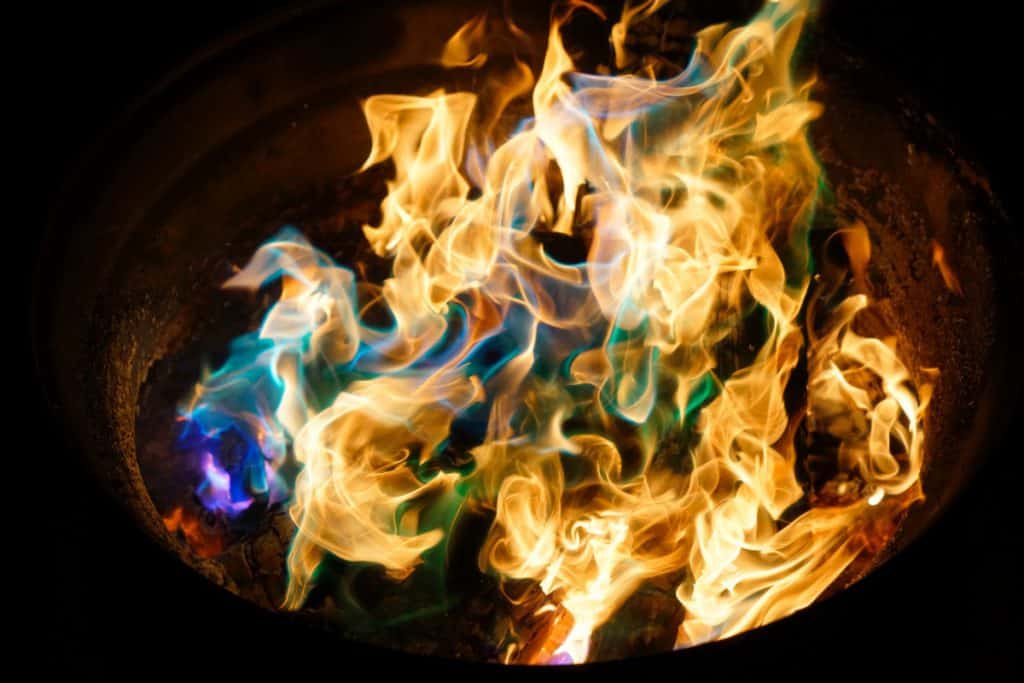
Gas Fire Pits
Gas fire pits are different than any other pit. They are integrated, which means you should not use a garden hose to spray the interior of the pit. All you need is a small container of water, a small amount of soap and a cloth. Wipe down the surface of the pit and make sure you regularly check the gas line for safe operation.
How to clean lava rocks in your fire pit
If you have a gas fire pit then you can use lava rocks, but they will also need cleaning. Lava rocks are actually easy to maintain. Before you clean them, make sure they are cooled down completely.
Once that is done, you can just use water to clean the rocks, you don’t need anything fancy. But you can add a tiny amount of soap to just help deep clean the porous areas of the rocks.
How to clean a rusty fire pit
If you accidentally left some water in your metal or cast iron fire pit and it started rusting, don’t panic. It is not ideal, but it can be removed. You will need a dissolver of some sort. This can be store-bought, or even vinegar will do, as long as it’s white vinegar and it’s distilled.
You might also want to use a ball of steel wool, to scrub the rust off the surface. After you remove the rust, make sure you reseal the fire pit. This is going to prevent the rust from coming back.
How often to clean your fire pit
You should clean your fire pit regularly, around every six months. You do need to make sure you check your fire pit regularly, and clear anything that may have fallen on it, things like leaves, smaller rocks, and even insects.
“Keeping an eye on it regularly gives you peace of mind, and you won’t have a situation where you wanted to entertain in the garden, but your fire pit is full of stuff. This should go without saying, but do not keep rubbish or throw any rubbish in your fire pit.“
Check elements of your pit before each season, anything from fastening equipment to the actual hardware. If anything needs tightening, make sure you do so before using the fire pit. If you have a gas fire pit, ensure your propane tank is connected correctly and gas lines are not damaged.
Can I pour water in my fire pit?
To make sure your fire pit doesn’t crack or warp in, you need to let it cool on its own. Do not use water to extinguish your fire in the pit. It can take up to several days for the ashes to be completely cool, so make sure you check the ashes before starting to remove them from your pit.
Alright, that’s it for this article guys, if you found it useful then a share on social media or your website would be cool!
All the best
Steve
ps here’s a few articles related to this one you might find interesting:
Can Fire Pits Get Rained On (Things To Be Aware Of)
How to Keep Water from Pooling in My Fire Pit (Easy Steps to Take)

